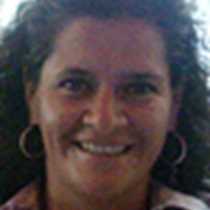Isabela & Fernandina
The expedition brought us to the westernmost islands of this archipelago, Isabela and Fernandina, the youngest of the group. Common dolphins and whales kept us running around the ship before breakfast. It was very nice to realize that one of the whales we saw was an immature blue whale, which is not very common around these waters. This area of the archipelago is bathed by the cold undercurrent of Cromwell that is very rich in nutrients and responsible for the marine wildlife found in the Galápagos.
The scenery of the shield shaped volcanoes made it easy for our guest to understand what geological time means and how erosion shapes the landscapes of our planet. Ecuador volcano has already submerged into the water letting us observe the volcano from inside as we crossed the Equatorial line.
We went to Punta Vicente Roca along the coastline of Isabela Island and saw the unique species that inhabit this area; Galápagos penguins within the smallest of the globe, Flightless cormorants, marine iguanas, Pacific green sea turtles and the wonderful Ocean sunfish (Mola mola) made our Zodiac ride very enjoyable. Back on board we got ready to see again the same creatures but this time underwater.
The snorkeling was just amazing. Having the opportunity to swim with the sea turtles and the tropical fish of the area made the experience the best of the snorkeling so far during this week on board the National Geographic Endeavour.
In the afternoon, the ship was repositioned to Punta Espinoza, Fernandina Island. An island that takes us back to very beginning of time, being the youngest of the chain, Fernandina is around a hundred and fifty thousand years old which in geological time once again it considered a baby. During the walk we talked about the very early processes of life taking place, one being the formation of soil. The simplicity of the ecosystem, together with its fragility, made us think that this place well deserves to be conserved so future generations’ life cycles won’t be altered by humans and can continue with their evolutionary processes… the true power of nature!



